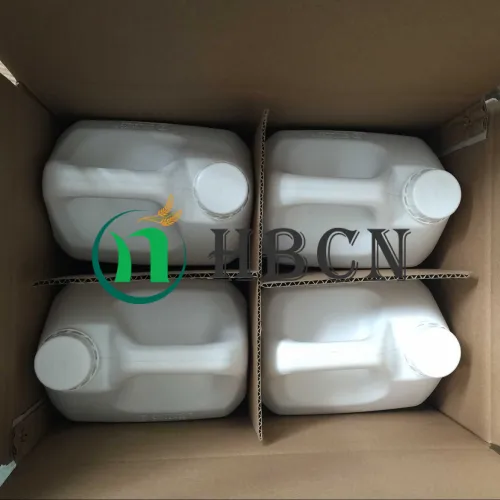
Aug . 16, 2024 10:07 Back to list
Natural Vinegar-Based Herbicides for Effective Weed Control in Your Garden
The Rise of Vinegar Herbicide A Natural Approach to Weed Control
In recent years, the quest for more environmentally friendly and sustainable farming practices has led to a renewed interest in natural herbicides. Among the various options available, vinegar has emerged as an impressive contender. This natural herbicide, primarily consisting of acetic acid, offers an effective solution for weed control while minimizing harmful effects on the ecosystem.
Why Vinegar?
Vinegar has been used for centuries in various cultures, predominantly as a culinary ingredient. However, its potent properties extend beyond the kitchen. The key ingredient in vinegar, acetic acid, acts as a desiccant, dehydrating and killing unwanted plants. While commercial herbicides often contain toxic chemicals, vinegar presents a safer alternative for both consumers and the environment.
How Does Vinegar Work as a Herbicide?
The effectiveness of vinegar as a weed killer largely depends on its concentration. Household vinegar typically contains about 5% acetic acid, which can be relatively ineffective against tougher weeds. However, higher concentrations, such as 10% to 20% acetic acid, can be significantly more effective. When sprayed directly onto the leaves of unwanted plants, the acetic acid in vinegar penetrates the cell membranes, causing the plant to lose moisture rapidly. This process effectively wilts and eventually kills the weeds.
While vinegar can kill annual weeds quickly, it is worth noting that it may not be as effective against perennial weeds with deep root systems. Nevertheless, for gardeners looking to tackle issues with annual weeds, vinegar can provide a quick and efficient solution.
Application Techniques
vinegar herbicide

Using vinegar as a herbicide involves some basic application techniques. To optimize its effectiveness, it’s best to apply it on a sunny day when the temperatures are warm. The heat enhances the impact of the acetic acid, allowing it to penetrate the plant tissue more effectively.
Home gardeners can utilize a spray bottle or a garden sprayer to apply the vinegar directly to the leaves of the weeds. It's essential to spray the weeds thoroughly, covering both the upper and lower surfaces of the leaves. However, care should be taken to avoid desirable plants, as vinegar can harm any vegetation it comes into contact with.
Considerations and Limitations
While vinegar is a powerful tool in a gardener's arsenal, it does have limitations. Since it is a non-selective herbicide, it can kill any plant it touches, which means extra caution is needed during application. Additionally, vinegar does not prevent future growth of weeds, and reapplication may be necessary to manage recurring infestations.
Furthermore, vinegar’s effectiveness diminishes in cooler temperatures, so it’s crucial to apply it during the growing season when weeds are actively growing. Additionally, the impact of vinegar may depend on the type of weed and its growth stage.
Conclusion
As the world becomes increasingly aware of the adverse effects of chemical herbicides on health and the environment, the popularity of natural alternatives like vinegar continues to grow. With its accessibility, effectiveness, and minimal environmental impact, vinegar herbicide presents a viable option for both home gardeners and large-scale agricultural operations.
Incorporating vinegar into weed management strategies not only aligns with sustainable practices, but it also empowers individuals to take control of their gardens and contribute positively to the environment. As research continues to explore and validate the potential of natural herbicides, vinegar stands out as a simple yet powerful ally in the fight against weeds.
-
Azoxystrobin: Broad-Spectrum Fungicide Solutions
NewsAug.11,2025
-
Best EPA Boscalid: Superior Crop Fungicide for Max Yields
NewsAug.11,2025
-
Best Willowood Imidacloprid: Superior Pest Control Solutions
NewsAug.10,2025
-
Best EPA Boscalid Fungicide: Ultimate Crop Protection
NewsAug.09,2025
-
Cyprodinil Fungicide: Broad-Spectrum Crop Protection
NewsAug.08,2025
-
Tembotrione Herbicide: Advanced 8% OD for Broad Spectrum
NewsAug.07,2025
